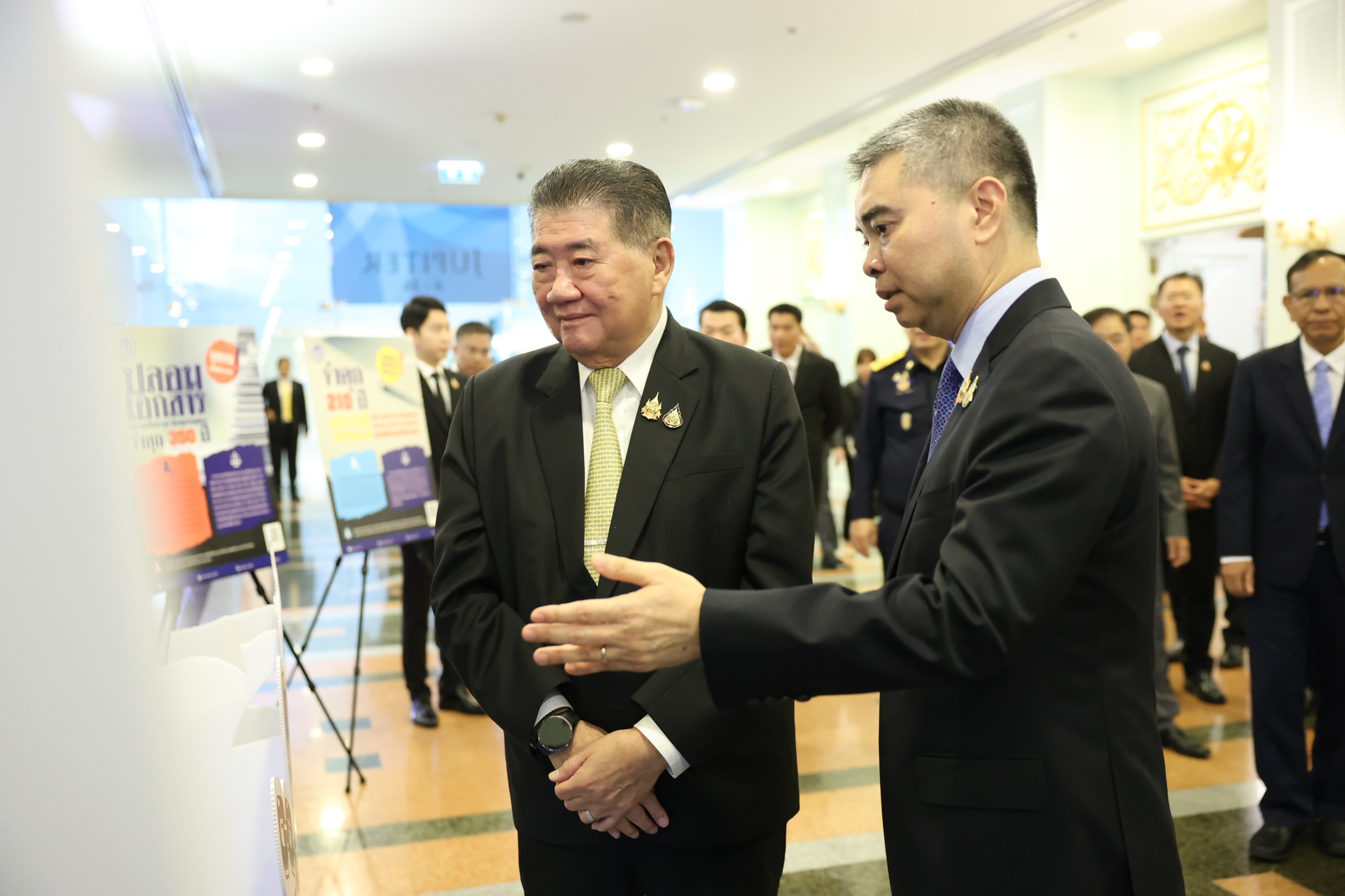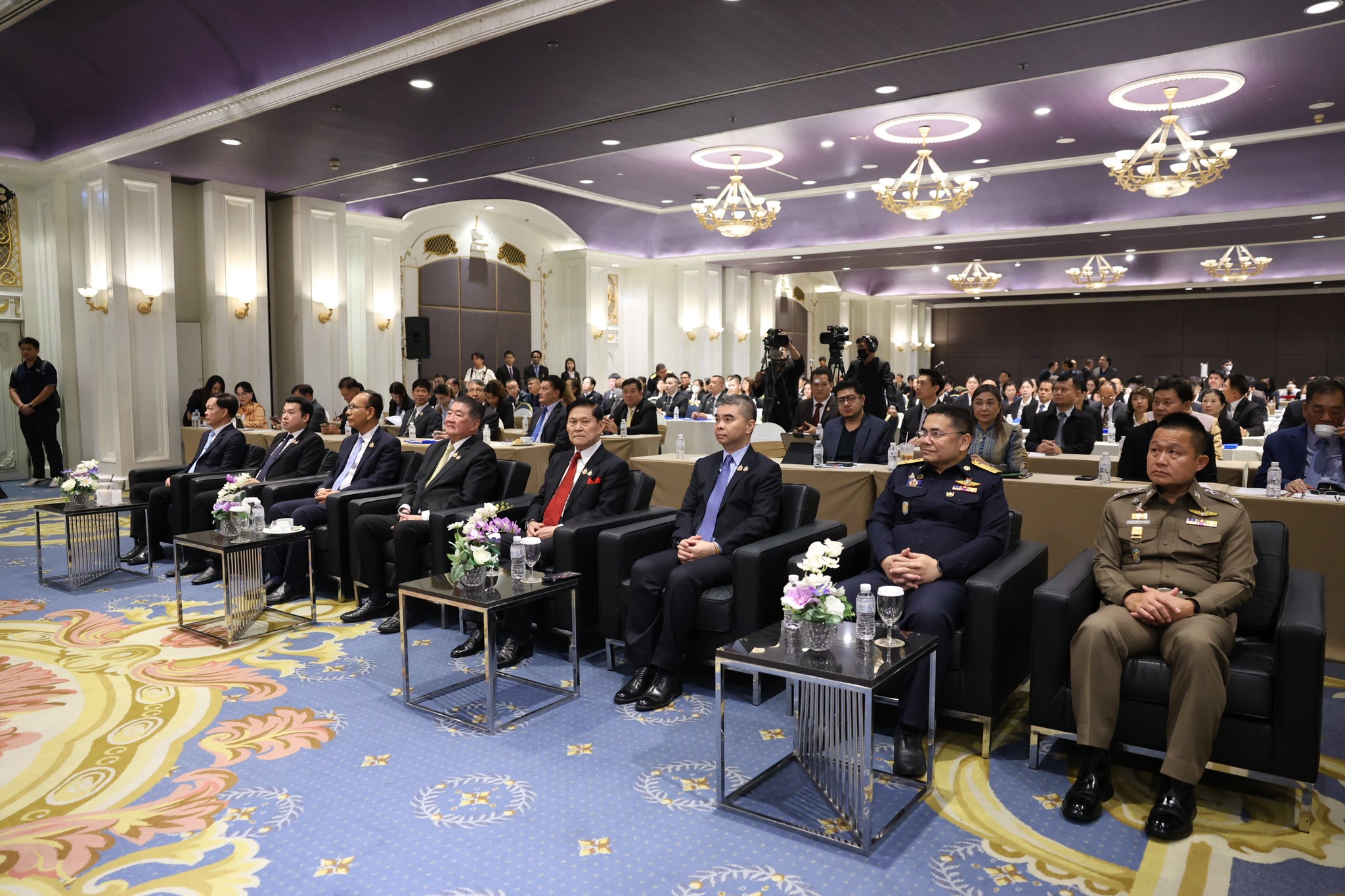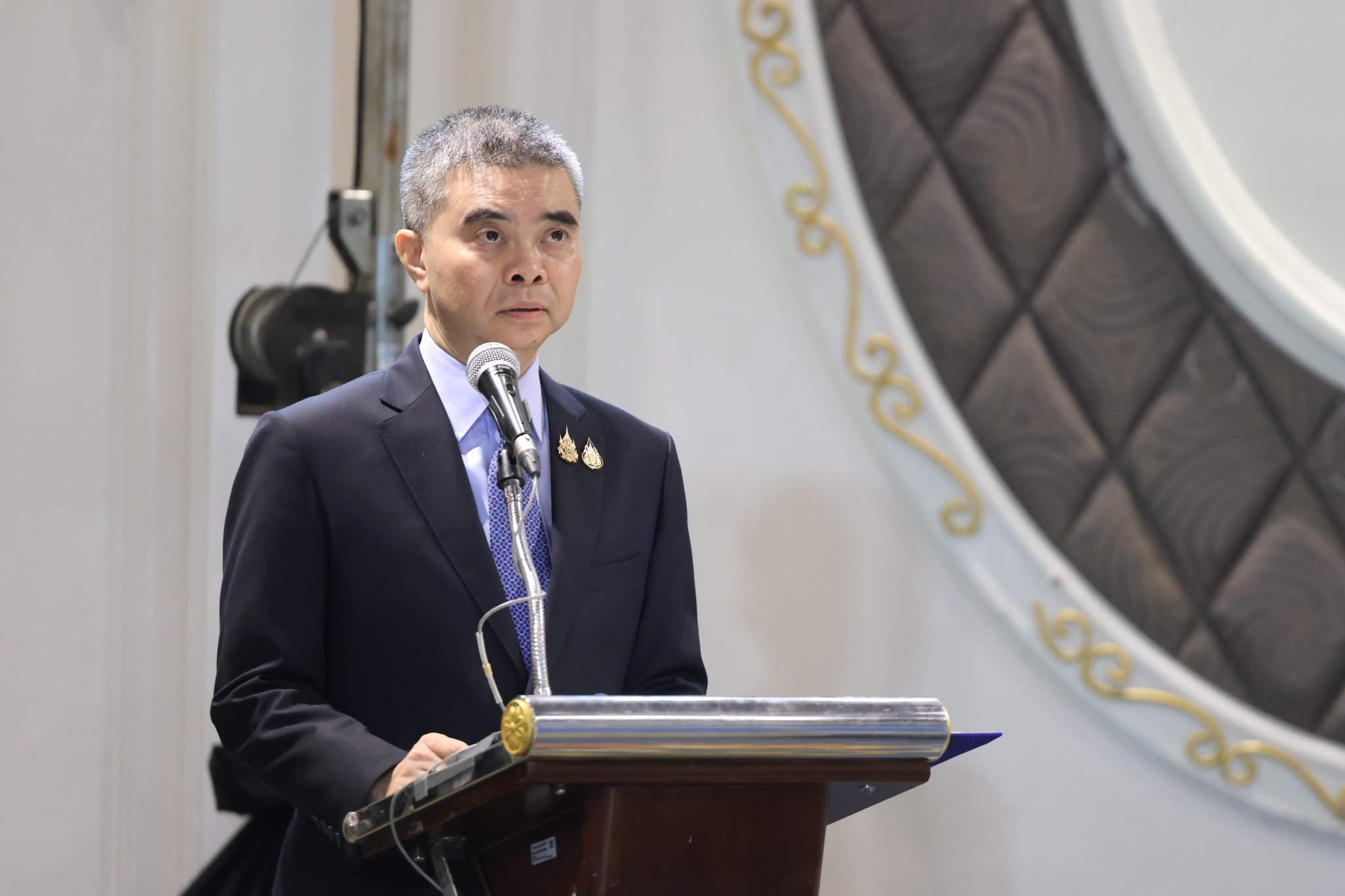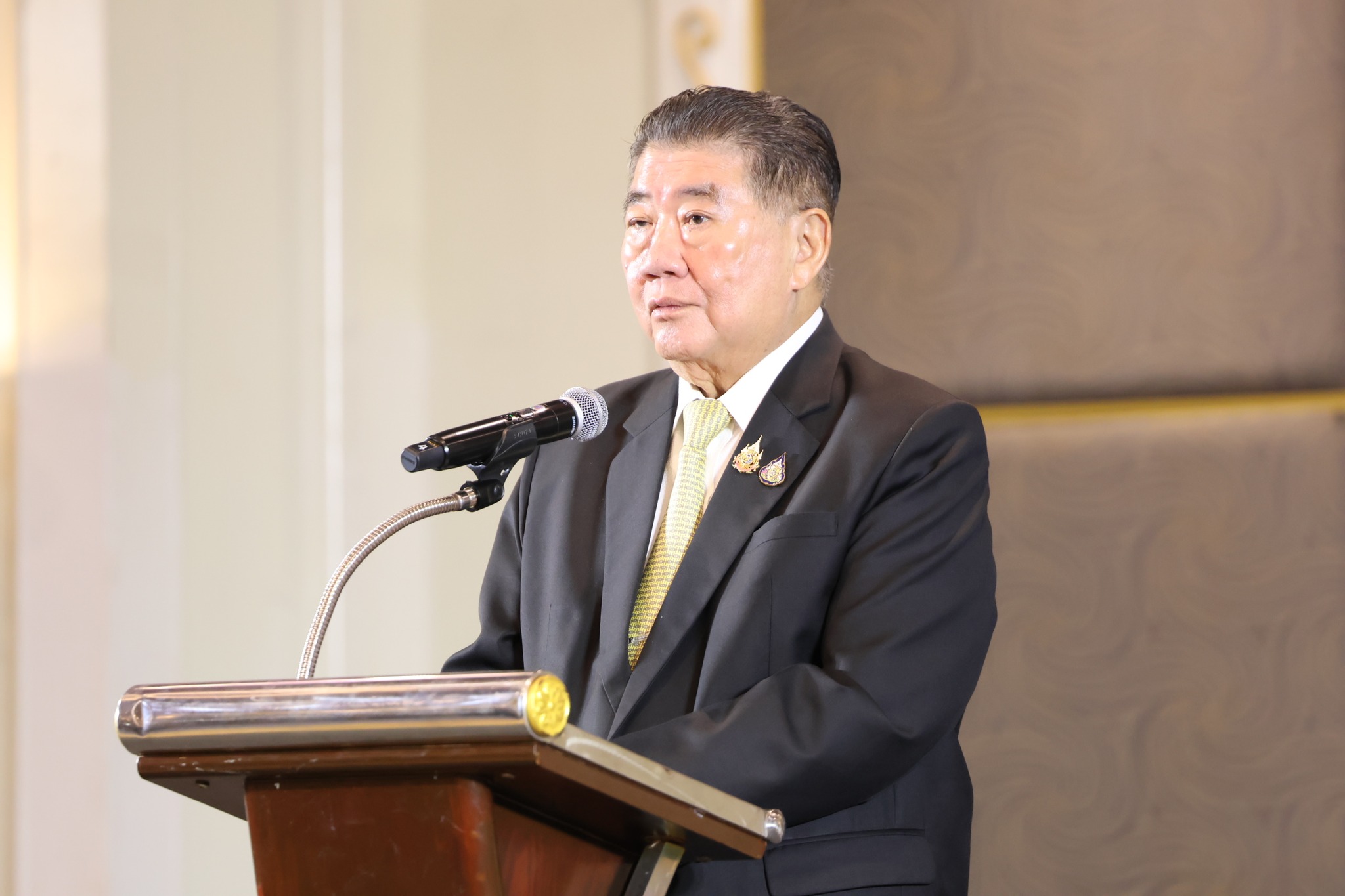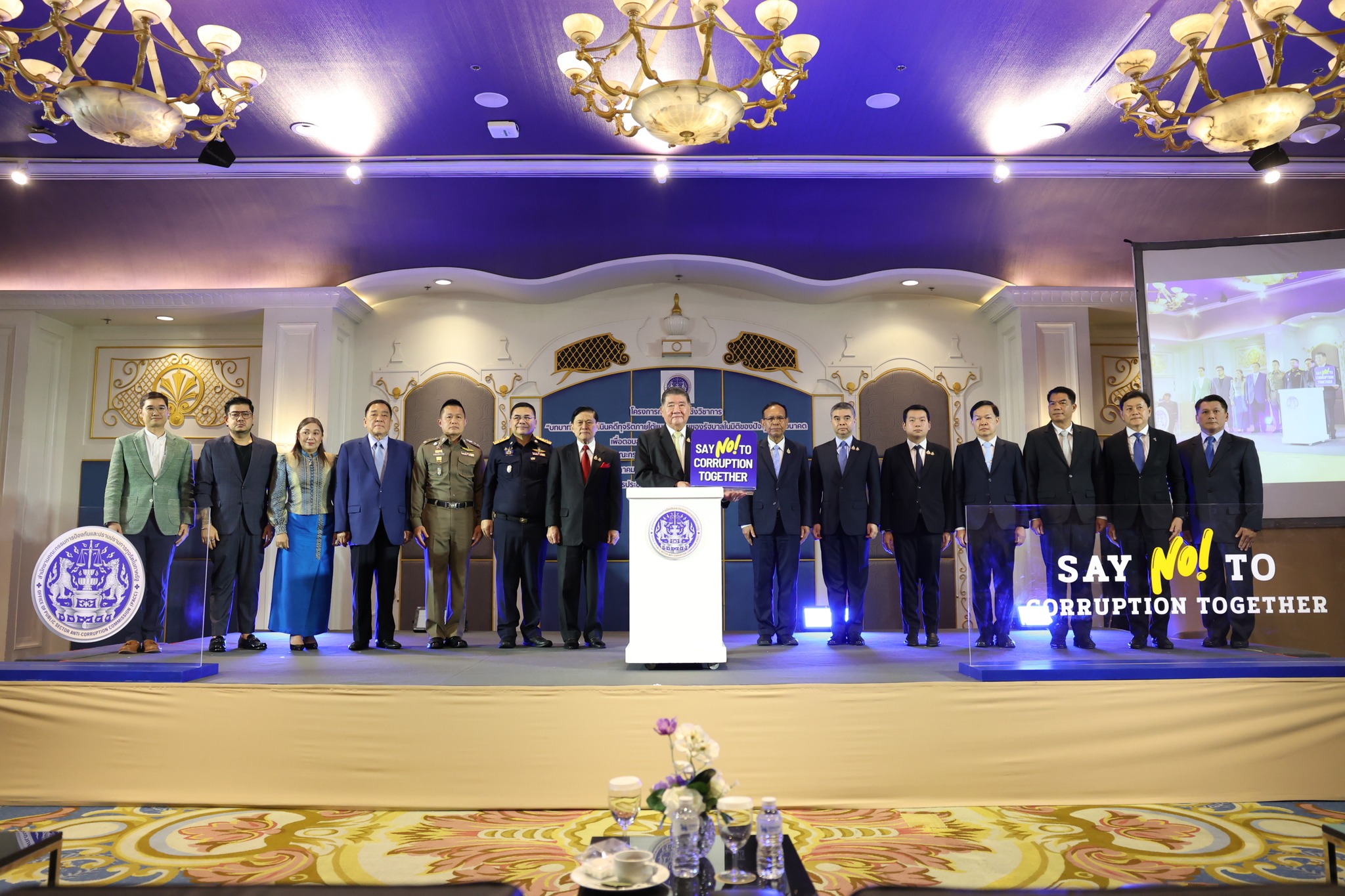
Mr. Phumtham Wechayachai, Deputy Prime Minister and Minister of Defence Opened Academic Seminar on “The Role in Corruption Prosecution Cases Under Government Policy in Present and Future Dimensions to Meet Public Needs”
8 May 2025
On Wednesday, May 7, 2025, at 9.00 AM., Deputy Prime Minister and Minister of Defence (Mr. Phumtham Wechayachai) presided over the opening ceremony of the academic seminar titled “The Role in Corruption Prosecution Cases Under Government Policy in Present and Future Dimensions to Meet Public Needs”, held under the concept “With Faith, We Fight Corruption.” The event took place at Jupiter Room 4–6, IMPACT Challenger Hall, IMPACT Exhibition and Convention Center, Muang Thong Thani, Pak Kret District, Nonthaburi Province. Also in attendance were Mr. Amnat Puangchompoo, PACC President, members of the PACC, Mr. Bhumivisan Kasemsook, Secretary-General of the PACC, executive officials and officers of the PACC, scholars, experts from various agencies, and representatives from civil society and the private sector, totaling 170 participants.
The Deputy Prime Minister emphasized that corruption remains a major obstacle to effective national governance. Beyond directly damaging government functions, it also undermines public and investor confidence, leading to a downturn in Thailand’s economy. He cited Thailand’s 2024 Corruption Perceptions Index (CPI) score of 34 out of 100, down from 35 in 2023, as evidence that the issue has not yet been adequately addressed.
To counter this, the government prioritizes concrete action in preventing and suppressing corruption, aiming to raise standards to a level accepted and trusted internationally. The government’s anti-corruption approach is driven by three core policies:
1. Upholding the Rule of Law and Promoting Transparency: Reinforcing legitimacy in public administration by strengthening legal institutions, ensuring budget management is cost-effective, transparent, and efficient.
2. Reforming the Bureaucracy through Technology: Enhancing public sector efficiency, reducing opportunities for interference and corruption, and instilling values of ethics, integrity, and professionalism in government personnel. Additionally, the government promotes open access to public information, enabling citizens to engage in oversight and participate in monitoring state operations. It also supports decentralization to local authorities.
3. Modernizing Public Services to Better Serve Citizens and Businesses: Making services faster, more citizen-friendly, and aligned with the role of government as an enabler, facilitator, and regulator. This includes reducing unnecessary laws and procedures to prevent government red tape from becoming a burden on business, thereby supporting economic growth.
Moreover, the government is committed to improving management efficiency in response to current corruption conditions. To this end, the Royal Gazette has published the new Executive Measures in Anti-Corruption Act. (No. 4), B.E. 2568 (2025), empowering the PACC as the core administrative agency responsible for driving prevention and suppression of corruption in the public sector. The new act focuses on enhancing the authority, responsibilities, and operations of the PACC to expedite fact-finding and case resolutions, ultimately minimizing economic damage to the country.
The Secretary-General of the PACC stated that today’s seminar brings together representatives from government agencies, independent organizations, academia, the private sector, and the media to share opinions, suggestions, and strategies for improving the anti-corruption prosecution process in alignment with the government’s policies. These discussions will help enhance the PACC's efficiency and promote a systematic, integrated approach to corruption prevention, truly addressing the needs and expectations of the Thai people.
Gallery

